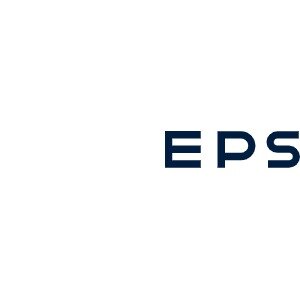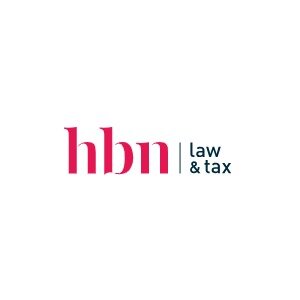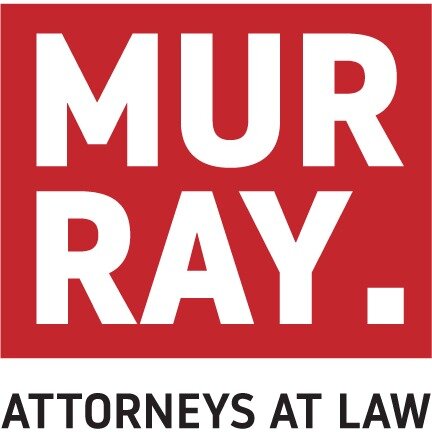Best Corporate & Commercial Lawyers in Curaçao
Share your needs with us, get contacted by law firms.
Free. Takes 2 min.
Or refine your search by selecting a city:
List of the best lawyers in Curaçao
About Corporate & Commercial Law in Curaçao
Corporate and commercial law in Curaçao refers to the legal framework that governs the creation, operation, and regulation of businesses, as well as commercial transactions within the jurisdiction. Curaçao is an autonomous country within the Kingdom of the Netherlands and has a well-developed legal system influenced by Dutch law, with its own specific statutes and regulations. The island is recognized as a prominent international financial center, known for business-friendly legislation and a robust infrastructure that supports both local and foreign investors. Entities such as limited liability companies (Besloten Vennootschap or BV) and public limited companies (Naamloze Vennootschap or NV) are commonly used legal forms, providing flexibility to entrepreneurs and investors alike.
Why You May Need a Lawyer
Navigating corporate and commercial matters in Curaçao can often require seasoned legal guidance due to the complexity of local laws and the international nature of many business transactions. Common situations where legal assistance is advisable include:
- Starting a business or establishing a legal entity in Curaçao
- Dissolving or restructuring a company
- Mergers, acquisitions, and joint ventures
- Contract drafting, negotiation, or enforcement
- Shareholder or partnership agreements
- Taxation and regulatory compliance
- Resolving business disputes or litigation
- Advising on employment relationships and labor law compliance within a business context
- Handling intellectual property matters related to company assets
- Ensuring compliance with anti-money laundering and other financial regulations
Engaging a legal expert ensures that your interests are protected and that your business activities comply with all applicable Curaçao laws and regulations.
Local Laws Overview
Curaçao has its own Civil Code (Burgerlijk Wetboek), which provides the statutory foundations for corporate and commercial legal practices. Key local features include:
- Company Types - The two main company forms are the BV and NV, both offering limited liability to shareholders and easy transfer of shares. Foreign investors often favor these structures for international activities.
- Company Registration - Businesses must be registered with the Chamber of Commerce (Kamer van Koophandel), which maintains the official company register. The process is streamlined and can often be completed within a short timeframe.
- Corporate Governance - Curaçao law requires careful attention to the roles and duties of directors, supervisory directors, and shareholders. Directors have a duty of care and may be held liable for mismanagement or non-compliance with statutory duties.
- Contract Law - Commercial contracts are enforceable under local law, and Curaçao generally recognizes the freedom of contract, allowing parties significant autonomy, provided agreements do not contravene public order or mandatory law.
- Taxation - Curaçao boasts a stable and attractive tax regime for various forms of local and international business. Special regimes, such as the E-Zone and the export facility, may provide unique benefits under certain conditions.
- Financial Regulations - The Central Bank of Curaçao and Sint Maarten regulates financial and insurance businesses, as well as anti-money laundering policies and procedures.
- Dispute Resolution - Disputes are typically resolved in the ordinary courts, though arbitration and mediation are also available as alternative avenues.
Understanding these fundamental aspects is essential before entering into business or commercial activities in Curaçao.
Frequently Asked Questions
What are the main types of business entities in Curaçao?
The most common types are the Besloten Vennootschap (BV), which is a private limited liability company, and the Naamloze Vennootschap (NV), a public limited liability company. Other forms include sole proprietorships, partnerships, and foundations.
Do I need to be a resident to incorporate a company in Curaçao?
No, foreign individuals and entities can establish companies in Curaçao. However, at least one managing director must be a resident or a local corporate body to meet the local presence requirements.
What are the minimum capital requirements for incorporation?
For a BV, there is no legal minimum capital requirement. For an NV, the minimum share capital required is ANG 50,000. These requirements can be amended depending on legislative changes, so always check the latest regulations or consult a legal expert.
How long does it take to register a company?
The company registration process is generally efficient and can often be completed within a few days, provided all necessary documents are in order.
What are the annual compliance requirements for companies?
Companies must file annual financial statements, maintain proper accounting records, hold annual general meetings, and comply with tax and social security reporting obligations.
Are there any tax advantages for international businesses?
Yes, Curaçao offers several attractive tax regimes, such as the E-Zone and export facility, which can provide reduced corporate tax rates for qualifying activities mainly generating income from foreign sources.
How is corporate governance regulated?
Corporate governance is governed by statutory provisions in the Civil Code, the company's articles of association, and any applicable shareholder agreements. Directors must adhere to their fiduciary duties and act in the company's best interests.
What steps are required if I want to close or liquidate a company?
Company dissolution requires a formal resolution, settlement of debts, liquidation of assets, deregistration with the Chamber of Commerce, and, where relevant, tax clearance from the tax authorities.
How are commercial disputes resolved in Curaçao?
Most commercial disputes are handled by the civil courts, but parties may also choose arbitration or mediation as alternative dispute resolution methods.
What are the main regulatory authorities for businesses in Curaçao?
Important regulatory bodies include the Chamber of Commerce (Kamer van Koophandel), the Tax Authority, and the Central Bank of Curaçao and Sint Maarten. These agencies oversee registration, taxation, and financial sector regulation.
Additional Resources
For those seeking more information or assistance, the following organizations play significant roles in corporate and commercial activities:
- Chamber of Commerce & Industry Curaçao (Kamer van Koophandel) - Responsible for company registration and business information.
- Central Bank of Curaçao and Sint Maarten - Regulates financial institutions and ensures compliance with monetary laws.
- Curaçao Tax Authority (Belastingdienst Curaçao) - Handles tax registration, filings, and compliance.
- Ministry of Economic Development - Provides support and information for investors and business development.
- Local law firms specializing in corporate, commercial, and compliance matters.
Next Steps
If you are considering starting a business, engaging in a commercial transaction, or facing a legal question in corporate and commercial law in Curaçao, take the following steps:
- Clearly define your business objectives and gather all relevant documents and information.
- Identify the specific legal issue you need to address, such as incorporation, contract drafting, or regulatory compliance.
- Consult with a reputable local lawyer with expertise in corporate and commercial law to assess your situation and receive tailored legal advice.
- Contact the appropriate governmental authorities or the Chamber of Commerce for official guidelines and further assistance.
- Ensure ongoing compliance by keeping up to date with any changes in law or regulations that can affect your business activities in Curaçao.
Taking these steps will help you navigate the legal landscape with greater confidence and protect your business interests as you operate in Curaçao.
Lawzana helps you find the best lawyers and law firms in Curaçao through a curated and pre-screened list of qualified legal professionals. Our platform offers rankings and detailed profiles of attorneys and law firms, allowing you to compare based on practice areas, including Corporate & Commercial, experience, and client feedback.
Each profile includes a description of the firm's areas of practice, client reviews, team members and partners, year of establishment, spoken languages, office locations, contact information, social media presence, and any published articles or resources. Most firms on our platform speak English and are experienced in both local and international legal matters.
Get a quote from top-rated law firms in Curaçao — quickly, securely, and without unnecessary hassle.
Disclaimer:
The information provided on this page is for general informational purposes only and does not constitute legal advice. While we strive to ensure the accuracy and relevance of the content, legal information may change over time, and interpretations of the law can vary. You should always consult with a qualified legal professional for advice specific to your situation.
We disclaim all liability for actions taken or not taken based on the content of this page. If you believe any information is incorrect or outdated, please contact us, and we will review and update it where appropriate.
Browse corporate & commercial law firms by service in Curaçao
Curaçao Attorneys in related practice areas.
Browse corporate & commercial law firms by city in Curaçao
Refine your search by selecting a city.













